Seasons – Winter 2024

From the Plateau Land & Wildlife Management Team
The new year has begun and is a time for a fresh start to celebrate, reflect on the past year, and make resolutions or set goals for what’s to come.
Initially what comes to mind at the beginning of any new year for many landowners are property taxes. Property tax bills arrive, and an important reminder that comes to the forefront is that the time is now to file certain late protests or motions to correct appraisal rolls. While your mind is already beginning to spin, it is also an ideal time to consider your property tax valuations and begin the steps to switch to Wildlife Management.
We invite you to follow along with our Winter edition of Seasons’, a curated collection of blogs and articles along with our recommendations and tips for landowners. This essential information includes information from our knowledgeable team of wildlife biologists and property tax consultants, the return of our in-person events and webinars, property tax deadlines, and hand curated stories for landowners that should be helpful tools.
At each step in your journey, Plateau is here to offer assistance in every possible way.
Until next Seasons,
The Plateau Team
Table of Contents
Looking Ahead to this Season and Beyond
Featured Speaker: Texan by Nature
Upcoming Events: Winter Webinar Series
Avoiding Common Property Tax Pitfalls
Hope for Honey Creek
News for Texas Landowners
Looking Ahead to this Season and Beyond
By PLW Staff
As we eagerly anticipate the upcoming season, we encourage our landowners to plan ahead for a successful and harmonious year on their properties. Are you feeling stuck at what you can do right now or what first steps you need to begin? Check off a required activity and sign up for a Spring Bird Survey.
What is a Bird Survey? Bird diversity, measured through annual surveying, can be an excellent indicator of the health and quality of your property’s habitat. Plateau’s Seasonal Bird Surveys let you accompany a Plateau biologist during a survey of your property’s avian community.
During a Spring Breeding Bird Survey, a Plateau biologist will provide insight into the birds that live and breed on your property in the spring season and improve your knowledge of the resident species on your land. A Plateau birder will identify birds by sight and sound of their calls, and both the number of and type of species of birds that are seen or heard will be recorded in a field log. This service includes detailed reports listing all species and numbers observed, and a brief habitat and location descriptions for each station.
Why would you want to explore a Bird Survey? This service qualifies as a Census activity for your annual wildlife management report. Annual Reports are an important tool that more and more Central Appraisal Districts (CADs) are actively requesting to document wildlife management activities in place of site visits. This means that documentation and good record-keeping of your management activities are more important than ever.
Contact us today at (512) 894-3479 or email to book your next bird survey or connect with our team to see how they can help you with any other activities on your list.
Featured Speaker: Texan by Nature
By Jenny Burden, Texan by Nature
As a recap from our Fall 2023 Webinar series, Texan by Nature provided an overview of water scarcity in Texas along with providing information on how they use conservation that is beneficial to people, prosperity, and natural resources. Follow along to learn more and be sure to check out our upcoming webinar series to experience more guest speaking presentations from our many partners. If you enjoy hearing deep dives on particular issues for landowners from our partners, be sure to sign up for our Winter Webinar series that begins January 16th to learn more.
Upcoming Events: 2024 Winter Webinar & Event Series

Ready to learn more about Wildlife Management options for your property?
Join us 5:45 – 7:00 pm starting January 16th to March 5th as Plateau Land Specialists and Staff Biologists host FREE educational webinars and in-person events for landowners. Whether you’re a new landowner or already in Ag or Timber, everyone is invited to join us for our 2024 Wildlife Exemption Webinar & Event Series. Connect with experts and learn how to make the switch to a Wildlife Management Exemption.
Join us in-person or listen along from your computer as our experts cover a variety of land ownership, wildlife management, and Texas ag exemption topics. Get answers to your questions about making the switch, learn about filing deadlines, requirements for activities and record-keeping, and more.
Special Landowner Topics Presented By: Cedar Eaters, Capital Farm Credit, Bee Salty, and Braun & Gresham.
View topics and featured speakers and register for upcoming events by visiting Plateau’s Event Directory. For questions or more information, contact plateau@plateauwil1dev.wpenginepowered.com or (512) 894-3479.
Avoiding Common Property Tax Pitfalls
Article by Cassie Gresham, Attorney and Counselor, Braun and Gresham

My work on behalf of landowners often involves helping them fix a problem or get out of a bind with their local appraisal district. Through the years, I have seen some common mistakes that can lead to big problems:
- Be aware of the deadline to file your annual report
Did you know that there is no state statute setting a deadline for annual reports? Therefore, many appraisal districts set their own deadlines for filing annual reports. You should know exactly what the deadline is each year in your particular county. - Be able to document your use of your property for open space
Landowners should have a written lease for their property to document who is using their property and how their property is being used for agricultural use. If you are using your property for wildlife management, then you should have an up to date wildlife management plan that you are following. When you implement the wildlife management activities on your property, you should document (take pictures, keep a journal, etc.) your work. - Was there an ownership change? You must re-file your application
You need to re-file an application in your own name if you have recently purchased a property. But, you also need to re-file an application even if you are just transferring the property into a new entity that you still own (i.e. LLC, LLP, Trust). Failure to file a new application will result in the loss in your open space valuation. - Always review your Notice of Appraised Value
The Notice of Appraised Value usually arrives in April/May each year. It shows you not only what the market value of your property will be for that year, but it also indicates whether or not your property will qualify for an open space valuation. Many appraisal districts consider the Notice of Appraised Value as the notice they provide if there is a problem. - Make sure to protest
You should protest each year if your property value has increased above the market value or is not being taxed in a similar manner to your neighbors. You should also protest if your ag or wildlife management valuation has been removed. You typically have 30 days to protest from the date that you receive notice that your ag or wildlife management has been removed. Or you should file a protest no later than May 15th, whichever is later. You can file a late protest, but you should file it before the appraisal district certifies their tax rolls. The certification usually occurs in late July. - Make sure to pay your taxes by January 31st
You should pay your taxes by January 31st of each year, even if you have filed a protest and are waiting on a hearing or waiting on a lawsuit to be resolved. If you have lost your ag or wildlife management valuation and have filed a timely protest, then you at least need to pay the amount not in dispute or the amount of taxes you paid last year when you had an ag valuation. Failure to pay the taxes (even the undisputed amount) will result in a forfeiture of your protest or lawsuit. - Know the agricultural history of a property you are purchasing
Ask the seller to provide documentation of approval of the ag or wildlife management use before you purchase the property. You want to obtain any written leases or evidence of practices that have been implemented on the property prior to closing. When you make an application in your own name, you might be asked by the local appraisal district to demonstrate the history of use of the property. You will only have this information if you have previously requested it from the seller as part of your due diligence in purchasing the property. - Continue your use of the property for ag or wildlife management, even if you don’t qualify
Even if your property didn’t qualify for ag or wildlife management in a particular, you should continue the use of the property for ag or wildlife management use. This will allow you to avoid rollback taxes by demonstrating that there is no change in use in the property. - Additional notice is required to landowners who are over 65
In 2015, the Texas Legislature passed a law that requires additional notice to landowners who are over 65. If a chief appraiser believes there is a change in use of the property, then they are required to provide notice to the over 65 landowner. If the chief appraiser doesn’t receive a response within 60 days, then they are required to follow up with the landowner. This new law provided additional protection for landowners and a higher standard for appraisal districts. Most appraisal districts are not aware of this additional notice and fail to provide it. - Communicate your local appraisal district
Haven’t heard from your local appraisal district by April 1st? Call them. Many of the problems that we have to solve are due to lack of notice. If you are talking to your local ag appraiser, you are more likely to know if there is a problem. Why do I suggest the date of April 1st? Because it still gives you time to solve any problems that need to be addressed (i.e. file a new application, annual report or a protest).
If you have questions or concerns about your property tax status, bill, or filing a protest, Braun & Gresham can help. The attorneys at Braun & Gresham are not only experts and innovators in ways to utilize property tax incentives and how to reduce your property taxes, but we also serve as your advocates when you are unfairly taxed. We know the rules and how to use them. We also make sure the taxing authorities follow those rules. Please contact us at (512) 894-5426 or email info@braungresham.com.
Hope for Honey Creek
Video by The Nature Conservancy
Just 30 miles outside of San Antonio, a pristine stream still runs wild. The clear waters of Honey Creek flow from 2.5 miles from its source, rolling over limestone boulders as it winds through the Hill Country before finally meeting the Guadalupe River. Fed by natural springs, the cypress-lined creek supports diverse plant and wildlife species at the Honey Creek State Natural Area. This 2,300-acre protected area brings new meaning to a “land of milk and honey,” with an abundance of natural beauty and ecological value.
Learn more about this acquisition in Central Texas here.
News for Texas Landowners
Expert advice on dealing with wild hogs: Fence them out, and don’t try to scare, drench or shoot them.
Article by Brian Kirkpatrick for Texas Public Radio
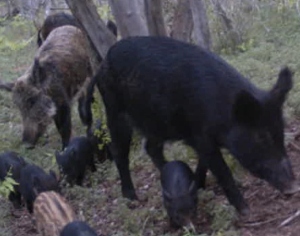
Wild hogs recently struck again in San Antonio’s outer subdivisions. Residents reported that the animals tore up yards in the neighborhood about three miles south of SeaWorld on the far West Side.
Home security cameras caught them in the act. John Tomecek, a professor and wildlife specialist with the Texas A&M AgriLife Extension Service, said he thinks he knows why they’re so active now. As vegetation in unincorporated areas of the county turns more and more brown and stops growing all together this winter, there is less food for wild hogs to forage on.
A long-term drought has them also looking for water. Tomecek said that search draws them out of open pastures or wooded areas and into nearby subdivisions.
Short Ears, Big Wings, Can’t Lose
Article by Robyn Ross for Texas Monthly
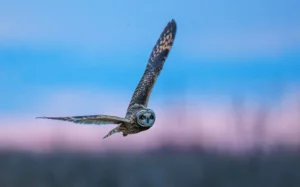
The owls are late. Oscar Vaz leans against his car, parked at the edge of a field in northeastern Travis County, and scans the landscape through binoculars. Somewhere, in the brush that’s turning from brown to pink in the evening light, at least half a dozen short-eared owls are roosting.
This is Vaz’s second visit today: he was here early this morning to catch a glimpse of the birds at daybreak. “As I started seeing sunlight, they were flying around, but the minute the sun was peeking up over the horizon, they hunkered down,” Vaz says. On their way to the roost, some flew close enough that he could hear the whoosh of air flowing over their wings.
Are swarming ladybugs harmful?
Article by Adam Russell for AgriLife Today
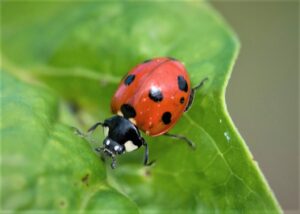
The annual invasion of swarming ladybugs appears to be in motion. Reports of ladybird beetles, commonly known as ladybugs, invading homes and structures across the southern U.S. have raised questions and concerns.
According to a Texas A&M AgriLife Extension Service expert, ladybugs are definitely a friend, but sometimes even friends can wear out their welcome. Wizzie Brown, AgriLife Extension integrated pest management specialist, Austin, said the increased sightings of ladybugs inside homes and structures are related to colder temperatures. Ladybug swarms can build up inside a home as they crawl through cracks and crevices around the house to find warm, dry spots as temperatures outside drop.
Highlights from Palo Pinto Mountains – Texas’ newest state park
Article by Brandi Addison for Lubbock Avalanche-Journal
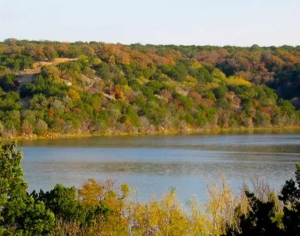
STRAWN — Roughly an hour west of one of the nation’s largest metropolitan areas, a vast landscape of nearly 4,900 undeveloped acres along the Western Cross Timbers.
Its rolling hills, coupled with blooming prairies and picturesque waterways, support habitat for hundreds of Texas species ranging from towering oak trees and endemic flowers to wild turkey and limber coyotes. With its fate under the guidance of state officials, the land stands as the first area to be established as a Texas state park this century, with the previous established nearly 20 years ago.
The Palo Pinto Mountains State Park was initially slated for completion in 2023, albeit an ambitious goal, as a celebration of the Texas state park system’s centennial. Park officials now say the public should expect an opening date something this year, though construction could continue into 2025, halting the park’s opening until next year.
TPWD considering bringing back restrictions on Spotted Seatrout
Article by KRISTV
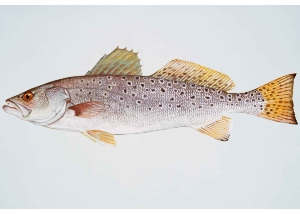
CORPUS CHRISTI, Texas — The freeze of 2021 continues to be a topic of discussion in the Coastal Bend. The freezing temperatures for a week in February hurt fish populations all along the Coastal Bend. Texas Parks and Wildlife Division said over three million Seatrout were killed. Restrictions were put in place to help the population bounce back.
‘I think the restrictions were good. It’s something we needed to allow the fishery to sustain,” said Aaron Salazar a professional fisherman. Fisherman could only keep three fish rather than five and they had to be between 17 and 23 inches.
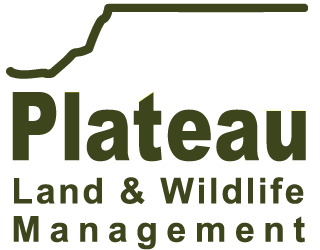


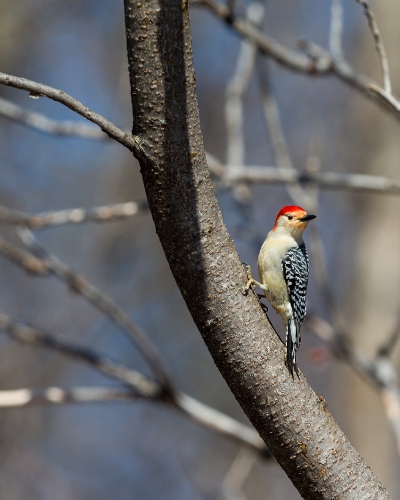



Sorry, the comment form is closed at this time.